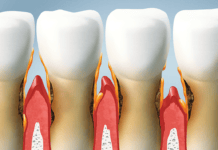Cancer is a fearfully dreaded word that has the capability of defeating dreams and breaking hearts. It is a word that has encroached in our lives and became far too comfortable. Unfortunately, we all have a common association with this word in some aspect, whether it is a friend, relative, or ourselves that has battled this ugly disease.
As dental professionals, we have not only the ability to help detect certain forms of cancer, but we also have the education to treat the side effects that cancer treatment may create.
Over one and a half million new cancer cases are diagnosed each year.1 With the prevalence being so great, dental professionals will see many patients who have been diagnosed with cancer in their career. Unfortunately, some patients do not seek regular dental care, and they may not visit the office until problems arise.
Other patients with cancer may simply not feel well enough to visit the dentist during their treatment. And then there are those patients whose oncologists request a wait for dental treatment until blood count levels are within a certain range. Regardless of when the occasion presents itself, dental professionals should jump on the opportunity to educate cancer patients with hopes that their efforts will help make a difference.
Helping the Patient with Cancer
Cancer often requires chemotherapy and/or radiation to treat the disease, and these forms of necessary treatments are accompanied with their own bundle of issues. Chemotherapy is administered to assist in killing rapid growing cancer cells. However, many normal cells are damaged during the process. Mouth cells are among the most commonly damaged normal cells during chemo.
Radiation is a treatment that is site-specific. If administered to the head or neck, it can cause various side effects to the oral cavity.
One of the prevalent side effects of chemo and radiation is dry mouth or xerostomia. Xerostomia is the absence or reduction of salivary flow. Saliva serves as more than just a lubricant in the mouth. The watery secretions possess many important functions such as aid to maintain the pH balance of the oral cavity, mechanical cleansing action, removal of food from the mouth, and to serve in remineralization.
While xerostomia is certainly uncomfortable, it is also detrimental to the dentition. Xerostomia can create a sore throat, burning mouth, difficulty speaking and swallowing, and an increase in caries. Xerostomia is responsible for tooth loss and periodontal disease in three out of 10 adults.2
It is important to educate patients about xerostomia and inform them how they can treat this specific side effect. Many products, over-the-counter and prescription, are available to assist in saliva substitution. Products that help restore and maintain a healthy pH are also available.
Nutritional Assistance
Dietary considerations are something dental professionals should educate patients with xerostomia about. Considerations should be focused on sodium intake, soft and spicy foods, and sugarless diets. One of the more valuable suggestions should be prescription fluoride use. Brushing or rinsing with a prescription-strength fluoride will assist in combating the higher pH levels and caries rate as a result of reduced salivary flow.
Xerostomia is not only uncomfortable, but it has the potential of snowballing into other issues such as a burning mouth and tongue, enlarged parotid glands, cheilitis, and oral candidiasis. By educating and guiding patients on better practices and treatments of xerostomia, dental professionals can collectively assist cancer patients in an already wearisome time. Having healthy oral health can help patient’s overall health.
During the initial diagnosis, patients are overwhelmed with loads of information and the fate of the disease itself. However, it has always struck me as odd that cancer patients are seldom encouraged to seek dental examinations prior to treatment, or at the least, counseled on the dental effects by their oncologists.
By staying ahead of the game, patients are less likely to experience dental ramifications. Hopefully, as the scope of practice expands for dental hygienists, a need will arise for a dental counselor in the oncology department. A little education and a few recommendations can go a long way to help patients fight a fierce battle of cancer.
Need CE? Click Here to Check Out the Self-Study CE Courses from Today’s RDH!
Listen to the Today’s RDH Dental Hygiene Podcast Below:
References
- Questions People Ask About Cancer. American Cancer Society. 17 July 2019. Retrieved from http://www.cancer.org/cancer/cancer-basics/questions-people-ask-about-cancer.html
- Xerostomia. The Oral Cancer Foundation. 15 Oct. 2018. Retrieved from https://oralcancerfoundation.org/complications/xerostomia/












